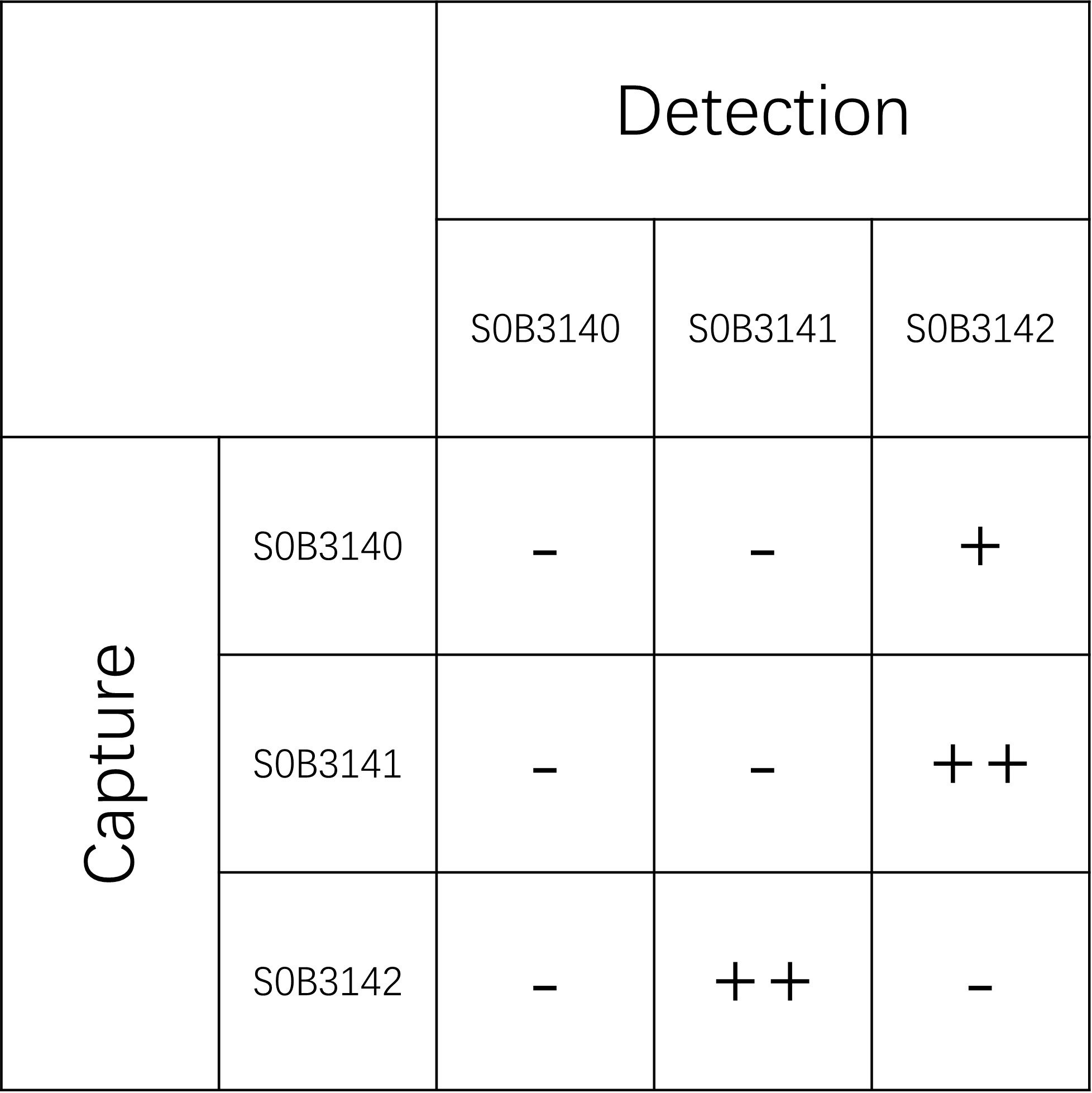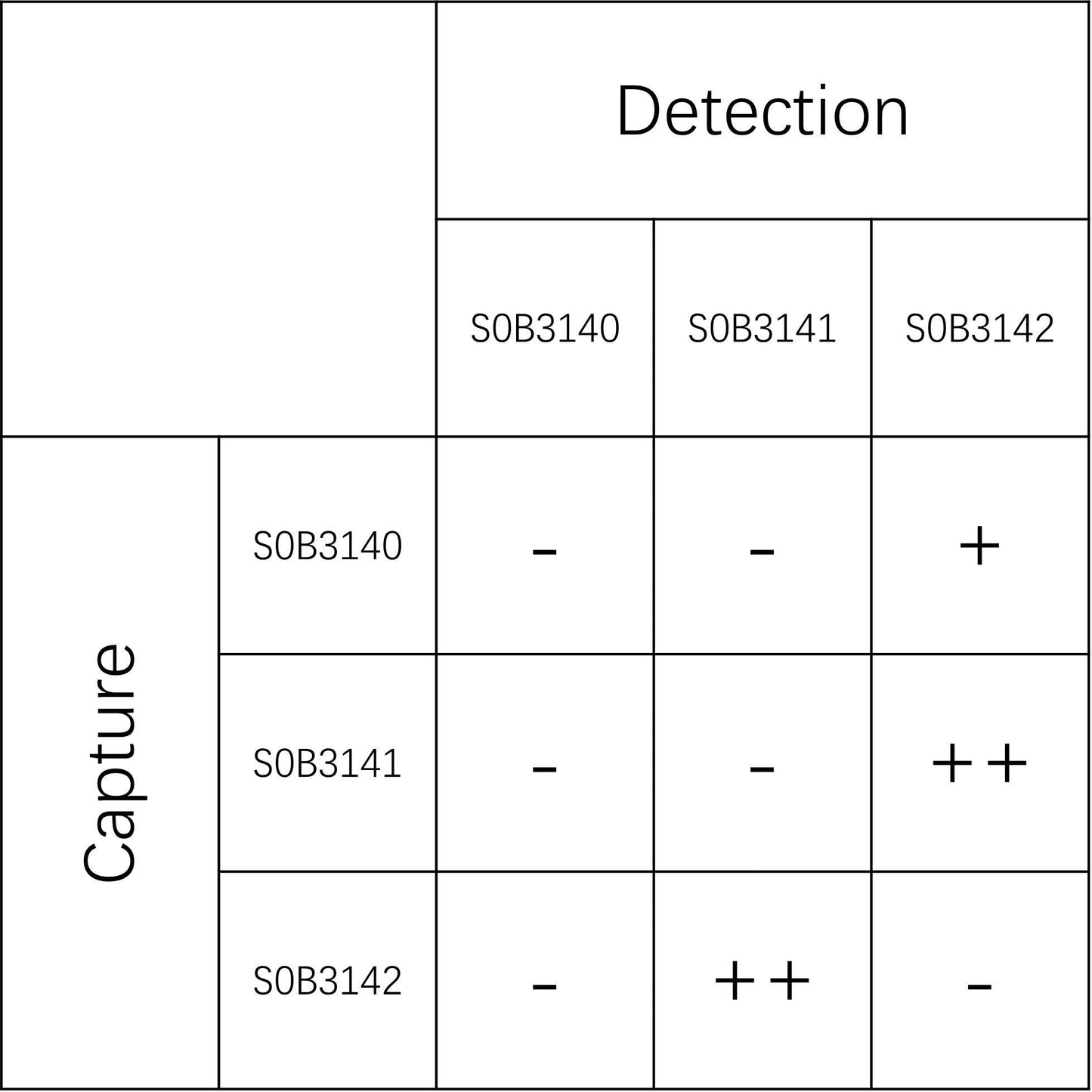Product Details
Product Details
Product Specification
| Host | Rabbit |
| Antigen | sFlt-1 |
| Synonyms | Soluble Fms-Like Tyrosine Kinase-1, sVEGFR-1 |
| Immunogen | Recombinant Protein |
| Accession | P17948 |
| Clone Number | SDT-233-26 |
| Antibody Type | Recombinant mAb |
| Application | CLIA, Sandwich ELISA |
| Reactivity | Hu |
| Cross Reactivity | Does not recognize PlGF |
| Purification | Protein A |
| Concentration | 2 mg/ml |
| Purity | >95% by HPLC |
| Conjugation | Unconjugated |
| Physical Appearance | Liquid |
| Storage Buffer | PBS pH7.4, 0.03% Proclin 300 |
| Stability & Storage | 12 months from date of receipt / reconstitution, 2 to 8 °C as supplied |
Dilution
| application | dilution | species |
| Sandwich ELISA | N/A |
Background
Soluble fms-like tyrosine kinase-1 (sFlt-1 or sVEGFR-1) is a tyrosine kinase protein with antiangiogenic properties. A non-membrane associated splice variant of VEGF receptor 1 (Flt-1), sFlt-1 binds the angiogenic factors VEGF (vascular endothelial growth factor) and PlGF (placental growth factor), reducing blood vessel growth through reduction of free VEGF and PlGF concentrations. In humans, sFlt-1 is important in the regulation of blood vessel formation in diverse tissues, including the kidneys, cornea, and uterus. Abnormally high levels of sFlt-1 have been implicated in the pathogenesis of preeclampsia. Preeclampsia (PE) is a hypertensive pregnancy disorder that occurs in approximately 2% to 4% of all pregnancies and is accompanied by substantial morbidity and mortality for both mother and infant and long-term risks for chronic diseases. The exact causes of PE are still unclear, but contributors are systemic endothelial dysfunction, impaired angiogenesis, and decreased vascular compliance. In recent years, research has focused primarily on soluble anti-angiogenic factors, such as soluble fms-like tyrosine kinase-1 (sFlt-1) and pro-angiogenic factors, such as placental growth factor (PlGF). An anti-angiogenic imbalance upon increased sFlt-1 levels has been shown to be a critical factor in the pathogenesis of placentally associated disorders such as PE and is strongly associated with the crucial process of remodelling of the maternal spiral arteries. As an anti-angiogenic factor on the surface of vascular endothelial cells, sFlt-1 blocks the responses of the pro-angiogenic factors vascular endothelial growth factor (VEGF) and PlGF. Those changes in the concentration of angiogenic factors can be measured in maternal blood samples–an elevated sFlt-1/PlGF ratio can occur weeks before clinical symptoms of PE arise. Therefore, measurement of the sFlt-1/PlGF ratio has become an established marker in clinical practice for early prediction of PE.
Picture
Picture
Validation Data



